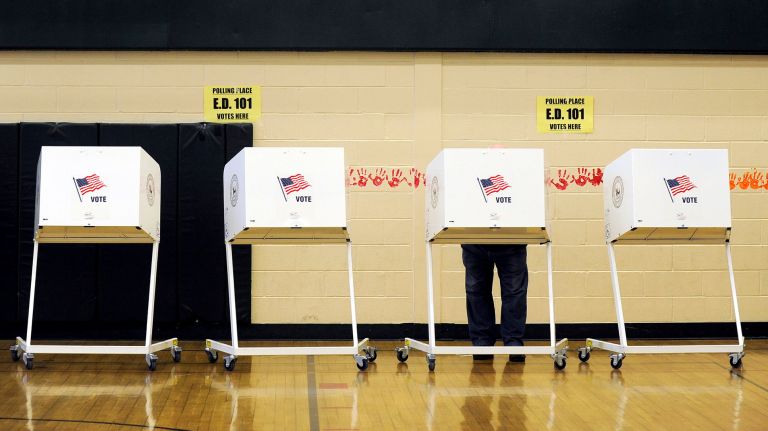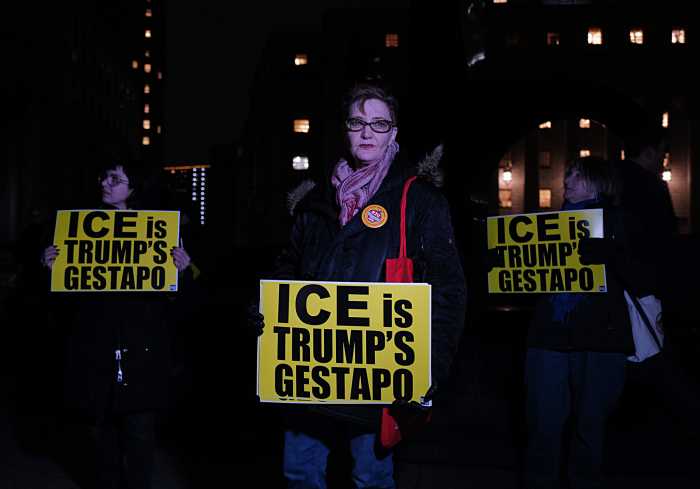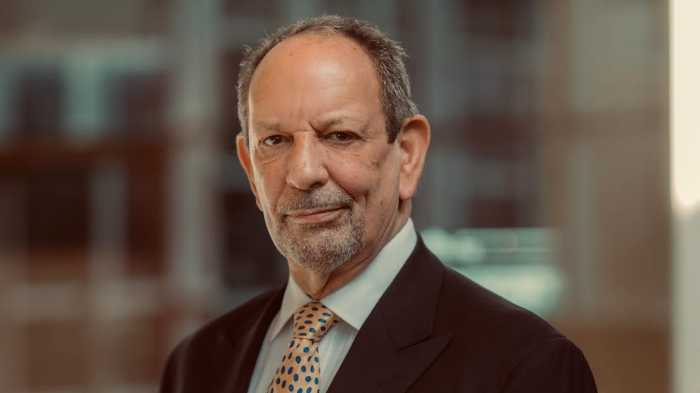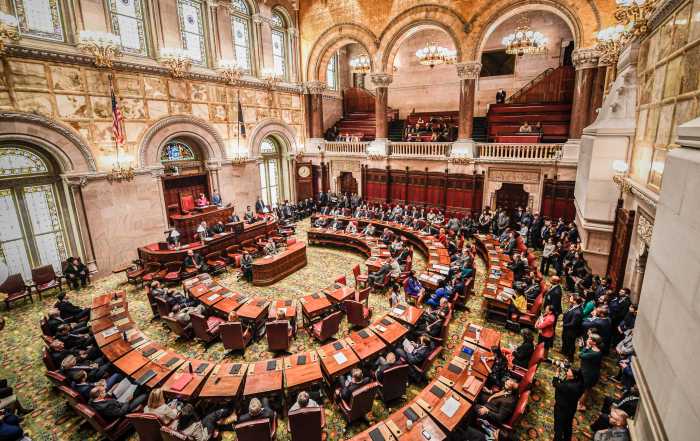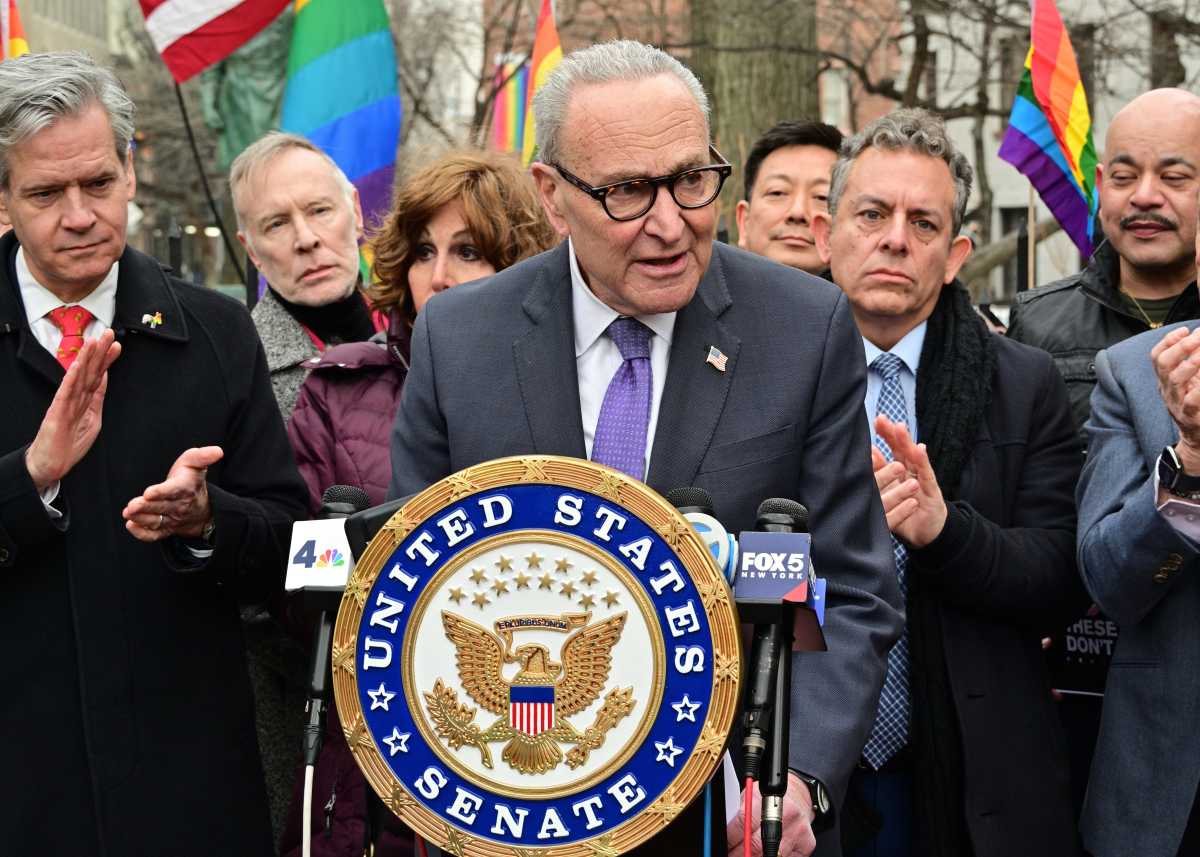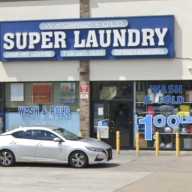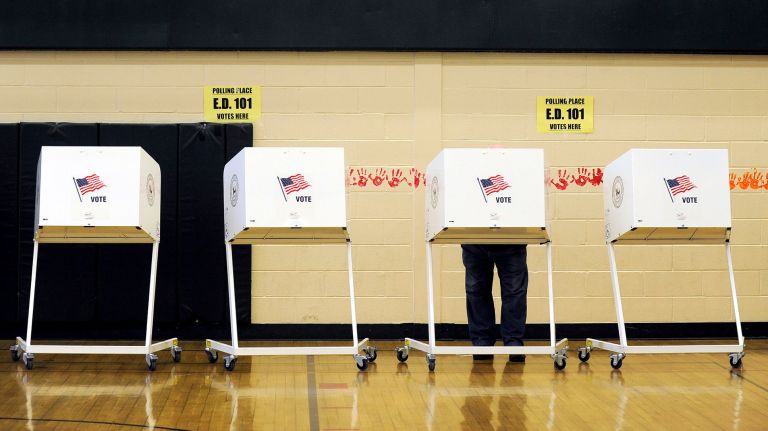
Earlier this year, the closed-door, three-people-in-a-room process of hammering out a state budget coughed up a commission. That panel, charged with establishing a public finance system for statewide and state legislative races, held its first hearing this week, at the Borough of Manhattan Community College.
Why should people care about public financing for elections? Without it, and with few constraints on big money, it’s the big donors who often get courted by state politicians. One stat that was repeated multiple times by speakers at the Manhattan hearing: In the 2018 state elections, the top 100 donors gave more to candidates than all of the 137,000 small donors combined.
The nine-person commission is tasked with delving deep into New York’s election law, perhaps instituting a matching system along the lines of what exists in New York City, lowering the bar of entry for people seeking office and incentivizing them to get broad support from small donors.
Fritz Schwarz, chief counsel to the Brennan Center for Justice and a New York icon — counsel to Mayor Ed Koch, for one — put it grandly in his testimony. The state has the opportunity to be a “laboratory for democracy,” he said.
Except these grand thoughts were far from the focus of the hearing, and far from the most controversial aspect being considered by the commission. That would be “fusion” voting, the system by which candidates in New York can run for office on multiple ballot lines.
It’s a long story but the short of it is that Gov. Andrew Cuomo appears to have it in for fusion because one group that benefits from it, the Working Families Party, has peskily tried to push him left for years.
Cuomo’s fusion fight isn’t particularly public but the state party he heavily influences called for an end to the practice, and one of his nominees on the commission, state Democratic Party chair Jay Jacobs, has been outspoken against fusion.
Virtually all the moments of tension during the Tuesday hearing had to do with fusion voting. Ally after ally of the WFP used his or her three minutes in support. They included Public Advocate Jumaane Williams and City Council Speaker Corey Johnson, plus state senators and assembly members who have been aided by the WFP.
Beyond the politics, fusion actually does present an interesting underlying philosophical question about American civics. Supporters note that fusion has survived challenges before and makes life easier for third parties, and third parties have been integral over the course of American history. Fusion has helped usher in political reforms and limits on party boss rule, the WFP argues in a lawsuit against the commission’s potential fusion actions. Most people don’t fit perfectly into the Democratic or Republican parties and voting for the likely-to-win major party candidates on a third party line can help voters register their preferences. Crucially, fusion voting, which does not exist in many states, might let voters cast ballots closer to their conscience without being spoilers, as WFP national committee co-chair Dan Cantor argued Tuesday.
On the other hand, fusion empowers not just the WFP but the right-leaning Conservative and Independence parties. Where the WFP often uses its ballot line as leverage to advance its political beliefs, other parties routinely use that leverage for judgeships, patronage jobs, and other purposes. That usually happens on Long Island and other subway-less spaces, so the city-centric political sphere may not be so bothered by it. Fusion can lead to alliances that don’t make philosophical sense to voters or basically anyone: Democrats and WFP and Conservatives all running the same candidate, for example. And maybe there’s life after fusion. The WFP functions in other states by pressuring Democrats.
These are real arguments you can try to hash out even before getting to hypotheticals about the effects of getting rid of fusion. A sign of how dicey this is: After the day-long hearing, I asked Jacobs, the Cuomo-appointee, about the idea that fusion addresses the spoiler problem.
“I agree with that,” he said, noting that it’s small compared to his list of anti-fusion arguments, familiar to him thanks to heading the suburban Nassau County party in addition to the state one.
Nevertheless, this thorny issue has been wedged into a crucial elections debate around which there’s much less controversy. And the debate will be busy. The commission must report back — on all its work — in just three months.
“Laboratory for democracy.”



